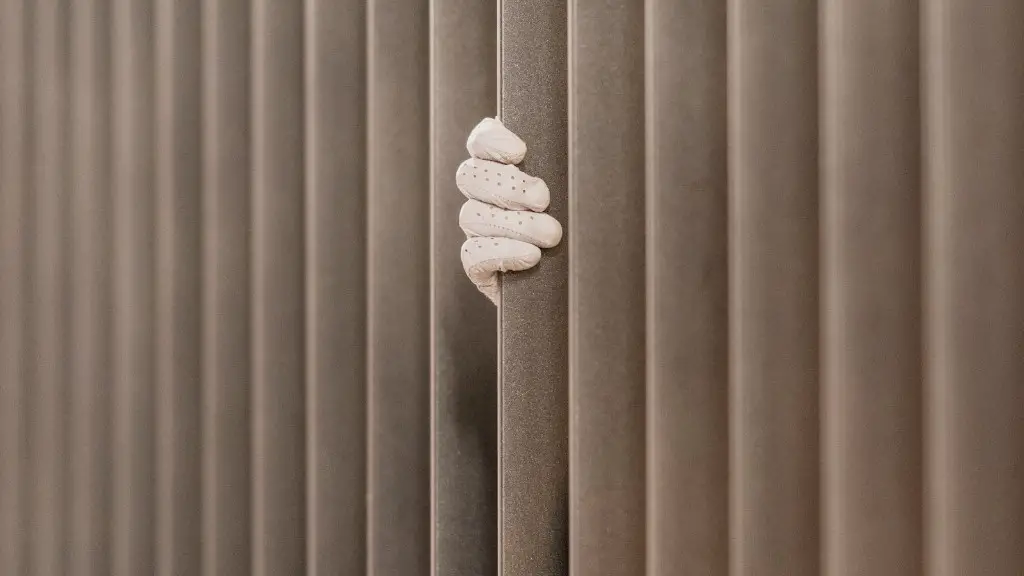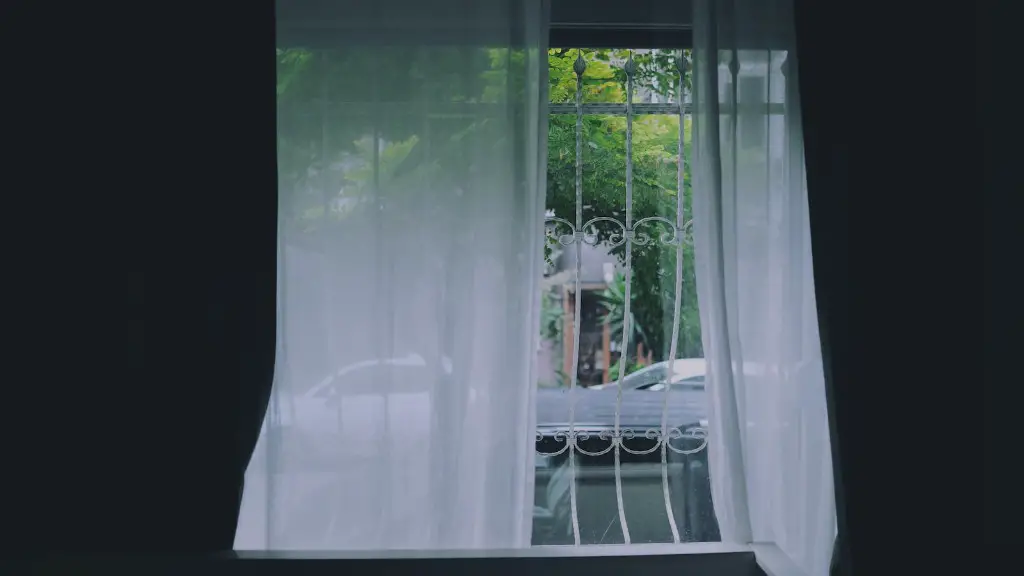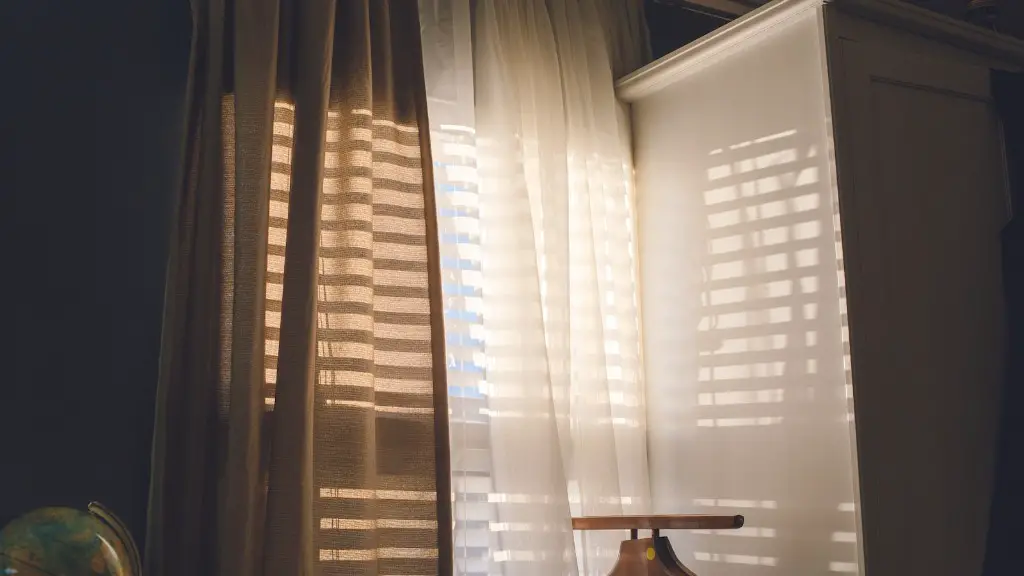The debate surrounding whether or not curtains actually help to reduce heat loss in a home is ongoing. Some experts assert that any fabric barrier will stop heat from escaping a window, while others claim that the thinness of most curtains allows heat to escape easily. Conducting your own research on the topic is the best way to determine whether or not investing in curtains for your home is worth the effort.
Yes, curtains can help to reduce heat loss in a home. By hanging curtains over windows, you can create an extra layer of insulation that can help keep heat in. In addition, using heavier, thicker curtains can also help to keep heat from escaping.
Why do curtains reduce heat loss?
Curtains are a great way to help keep a space warm by restricting the flow of air between the warm and cold areas. Double-glazed windows can allow heat to escape, but heavy curtains will act as a barrier, preventing air from flowing from the main room to the window. This will help to keep the heat in the room, making it more comfortable.
If you’re looking for a way to block out heat and keep your home cool, consider investing in some thermal drapes. These drapes are made with thicker materials like polyester and microfiber, which makes them great at blocking out heat. They also resist moisture, so you won’t have to worry about them accumulating in between the window and curtain.
Do curtains keep heat in better than blinds
Curtains offer better insulation than blinds because they are thicker and don’t have slats. However, in summer, blinds are better than curtains for energy efficiency because heat escapes easily through the slats.
Thermal curtains can help reduce hot air entering your room in the summer, but the overall reduction in energy waste is small.
How much heat is saved with curtains?
Curtains are a great way to reduce heat loss in your home. By hanging high-quality curtains that are floor length and close to the wall and window panes, you can reduce heat loss by around 40%. This is a great way to keep your home warm during the colder months.
Age UK, a charity organization in the United Kingdom, advises homeowners to take advantage of natural heat from the sun. Homeowners should keep window shades and curtains open during the day to allow sunlight to enter the home and help warm it. At night, they should close the curtains to help keep the heat in.
What is the best fabric to block heat?
Coated fabrics are a type of fabric that has been coated with a substance that makes it heat resistant. These fabrics are often used in industries where there is a need for protection from heat, such as in the construction or automotive industries. Coatings that are used on these fabrics typically include neoprene, silicone, ceramic, or refractory materials.
If you want to keep your home cool and your energy bills in check, the Department of Energy recommends managing your window coverings carefully. Blinds, curtains, and other treatments can reduce heat gain by up to 77 percent. By keeping your windows covered during the hottest parts of the day, you can keep your home cooler and reduce the strain on your air conditioner.
How much energy do curtains save
Thermal curtains can reduce heat loss in your home by up to 25%.
If you’re working in a space that gets very low natural light, nixing the curtains might be your best bet. This way, you won’t have to worry about the fabric absorbing any of the light that’s available.
When should you not hang curtains?
I completely agree that a condo with floor to ceiling, wall to wall windows and stone walls flanking either side does not need the curtain treatment. Hanging out over the ocean, it simply doesn’t need to “fill” of fabric. Bathrooms, especially kid bathrooms, might actually be adversely affected by curtains.
Curtains are great for insulation and soundproofing, but in warm weather, blinds are more energy efficient.
What are the disadvantages of curtains
The main disadvantage of choosing curtains over blinds is that they take up more space. This can make a room appear smaller than it really is. In addition, long curtains can easily get messy, especially for people with young children. Curtains and drapes for windows can also be more costly in comparison to blinds.
It is true that white or light coloured curtains and blinds are better at reflecting heat and light away from your home. If you have thick, dark curtains, closing them will only trap heat in the room.
How much money do blackout curtains save?
In addition to their capacity to reduce energy costs, blackout drapes have several other benefits. For instance, they can help to reduce the amount of light entering a room, making it easier to sleep during the day. They can also provide privacy and reduce the amount of noise coming from outside.
The new study from Northwestern University is the first to look at the specific effects of light exposure on heart health. The researchers found that even a small amount of light exposure while sleeping increases the risk of heart disease and diabetes. The study’s lead author, Dr. Christopher Kollar Yiannopoulos, said that the findings “support the idea that too much light at night is bad for your health.” He recommends that people who are worried about their exposure to light at night should consider closing their curtains or use a sleep mask.
Does closing curtains at night keep heat in
Closing your curtains at night can help prevent energy losses of 50-100 watts per square metre. This is equivalent to running an old-fashioned light bulb. The best way to prevent this heat loss is to close your curtains and lower your blinds immediately after dusk.
If you’re trying to beat the heat inside your home, energy-saving window treatments will go a long way in reducing the amount of heat streaming into your home. Closing curtains can help cool the interior, save money on utility bills and lessen the wear and tear on your HVAC system.
Warp Up
There are a number of factors that contribute to heat loss in a home, and curtains are one way to help reduce that loss. Curtains provide an additional layer of insulation, and can therefore help to keep heat inside the home. In addition, curtains can be used to block drafts, which can also help to reduce heat loss.
Yes, curtains reduce heat loss. By closing the curtains, you are creating an insulating barrier between the cold air outside and the warm air inside. This barrier prevents the warm air from escaping and the cold air from coming in, thus reducing heat loss.





